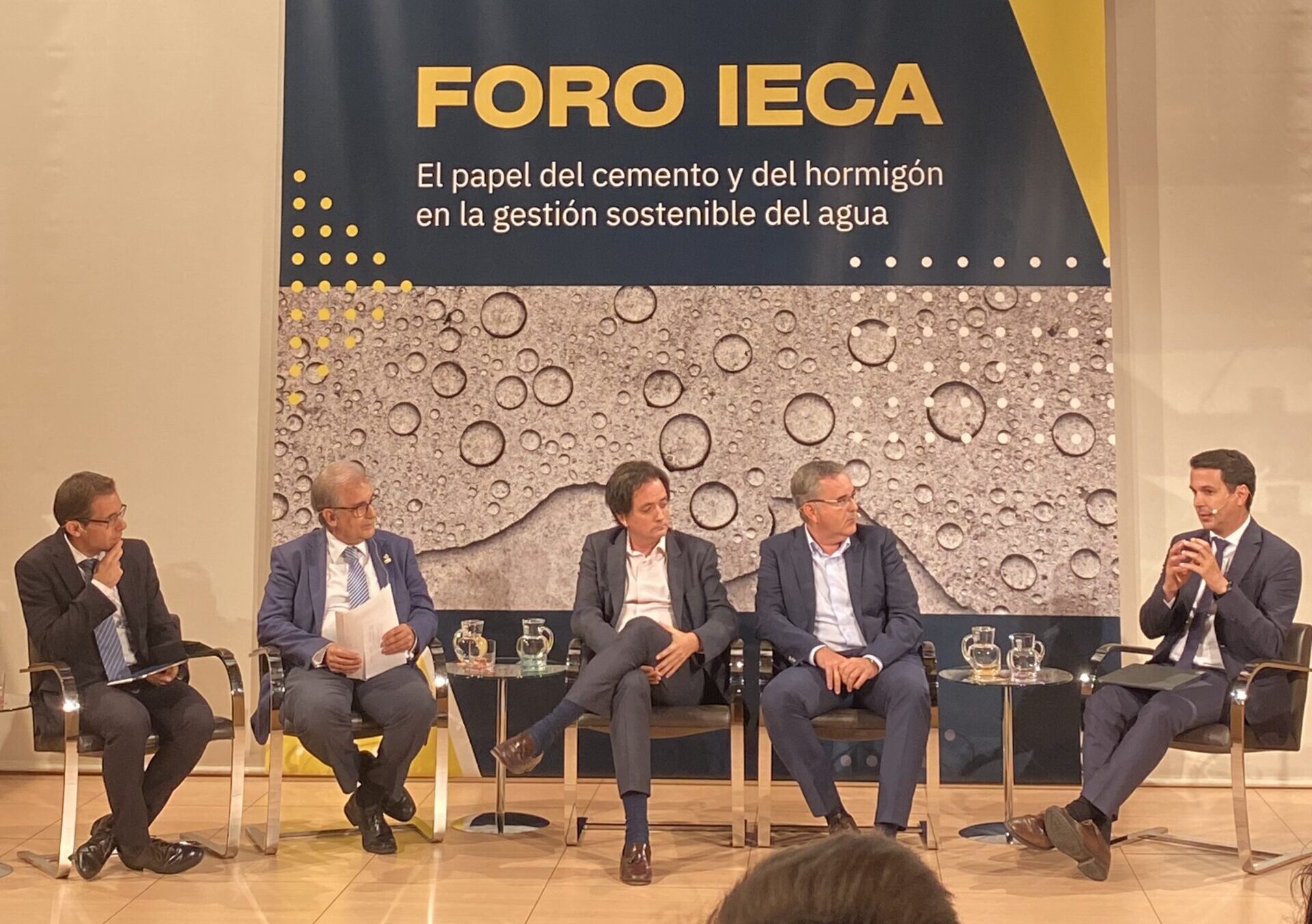A representative of Ciment Català participated a few days ago at Fundación Canal de Madrid in the IECA Forum, organized by the Spanish Institute of Cement and its Applications, which in this edition was held under the motto, “The role of cement and concrete in sustainable water management”. The event, which brought together the main players linked to hydraulic infrastructure and water resources management, highlighted the crucial importance of these construction materials for the management and sustainable use of water resources and to preserve and protect this asset common essential for all.
The event, which was attended by more than a hundred people, was also attended on the Catalan side by representatives of the Catalan Water Agency, the Isabel II Canal, the MITERD, Madrid City Council, the Spanish National Committee for Large Dams (SPANCOLD) and the Spanish Water Supply and Sanitation Association (AEAS), among other institutions.
Spain is the European country with the greatest tendency to water stress and it is estimated that in 2030, 65% of the Spanish population could suffer the consequences of water scarcity.
Throughout the Forum, the causes that are causing this increase in water stress in our country were analysed, among which the lack of rain, a consequence of climate change, stands out, but without forgetting that the deficit in quality infrastructure in the distribution and purification networks contributes to a large extent to aggravate this situation.
And at this point, cement and concrete are particularly relevant, construction materials par excellence for the infrastructures of the integral water cycle (storage, supply, sanitation, purification, irrigation, drainage…). The experts gathered emphasized its advantages for this use, such as its chemical stability, and its resistance to mechanical, physical, chemical and biological actions, as well as its fundamental role in the construction of dams, thanks to the its durability, resistance, permeability and economy.
The Forum also served to highlight the importance of water conservation and sustainable practices in its use, as well as the need to implement effective policies and regulations for water management and investment in infrastructures for supply and treatment.

